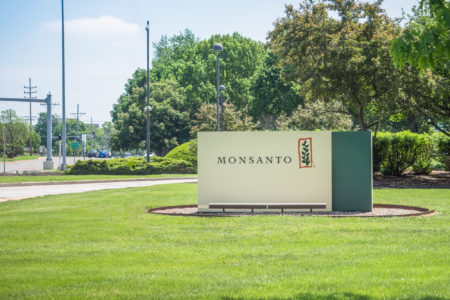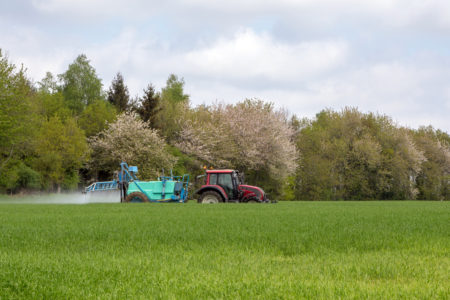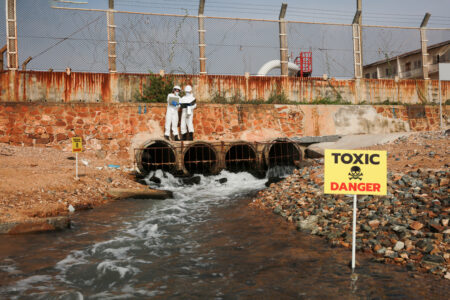
Share On Social!
Roundup manufacturer, Bayer, has faced countless lawsuits over their products’ toxic link to cancer development — now, they’ve begun a $5.6 billion research project to find safer alternatives.
The company announced this 10-year plan last week, urging they have heard consumer concerns and vow to make concrete changes going forward.
The statement comes as Bayer fights over 13,000 court cases and large payouts to families who claim they got cancer from exposure to Roundup.
“We are now starting to implement a series of measures to drive transparency and sustainability across our business,” Bayer’s CEO, Werner Baumann, said in a statement.
Plans for the Future
The company aims to find safe alternatives to harmful chemicals, such as glyphosate, and promote honesty, sustainability, and engagement.
This is a step in the right direction, considering scientists with the World Health Organization say these chemicals are “possibly carcinogenic to humans,” according to CBS.
One aspect of their model is involving the public in their decision-making processes, which include making their safety studies available online and inviting researchers, journalists, and NGOs to participate in the company’s upcoming EU glyphosate re-registration process. 
“As a new leader in agriculture, Bayer has a heightened responsibility and the unique potential to advance farming for the benefit of society and the planet. We are committed to living up to this responsibility and using our full potential,” Bayer states. “Consistent safety standards to our products are key for us, also when it means exceeding local regulations.”
Bayer also plans to also:
- Ensure high safety standards
- Create more transparency in crop protection registration
- Increase sustainability in agriculture
- Evolve engagement policies
Problems of the Past
The $63 billion acquisition of Monsanto, Roundup’s producer, made Bayer the largest global seed and agrochemical corporation, according to the Washington Post.
That purchase also came with public relations and legal problems surrounding claims of cancer development from Roundup exposure.
Currently, the manufacturer faces more than 13,400 U.S. lawsuits related to cancer development and glyphosate in Roundup.
“The new [$5.6 billion pledge] was necessary for the company to give themselves some hope of dealing with all the criticism,” writes Marissa Deaton of Exclusive Industry Reports. 
Despite research linking and Roundup, Bayer firmly states there isn’t enough science to back those claims.
Earlier this month, company officials asked a California trial judge to reverse a verdict that awarded the suit’s plaintiff $2 billion, according to Reuters.
“The resulting trial focused not on ascertaining the truth regarding the state of the science, causation, and compliance with legal duties, but instead on vilifying Monsanto in the abstract,” the Bayer said in a legal motion filed with the court.
Still, juries across the U.S. have been holding Roundup as the responsible party for cancer development in many suits.
Along with Roundup’s health impacts, the company is also aiming to address the ecological effects their products cause. According to their new plan, Bayer aims to reduce its environmental footprint by 30%.
Impacts for Latinos
Some Latinos face significant glyphosate exposure while at work, especially those living in areas where the chemical is frequently sprayed.
Throughout the country, 76% of all farmworkers are Latino, according to Farmworker Justice.
That data also shows that many of these laborers could be unauthorized to work in the U.S., meaning there also could be a lack of employer-provided insurance and access to healthcare. 
“Ken Cook, president and co-founder of the nonprofit Environmental Working Group, said that if Bayer is serious about reforming its products, it has to commit to a ‘fundamentally new paradigm for pesticides, which must start with a simple principle: This class of chemicals should not end up in people,’” the Post reports.
While companies throughout the country and world are grappling with the current conversation around harmful chemicals, the U.S. government seems to be taking steps backward in protecting its citizens from a variety of exposures.
The United States Geological Survey (USGS) recently announced it would no longer project long-term climate change impacts. If you don’t agree with that decision, speak up by sending USGS Director James Reilly an email urging for a rule reversal.
URGE FOR CLIMATE SCIENCE!
Editor’s Note: This article is part of a collaboration between Salud America! and the Hoffman Toxicant-Induced Loss of Tolerance (TILT) program at UT Health- San Antonio. To find out if you are TILTed due to exposure to everyday foods, chemicals, or drugs, take a self-assessment or learn more about TILT.
Explore More:
Chemical & Toxic ExposureBy The Numbers
1
Quick Survey
Can help you find out how chemically sensitive you are



